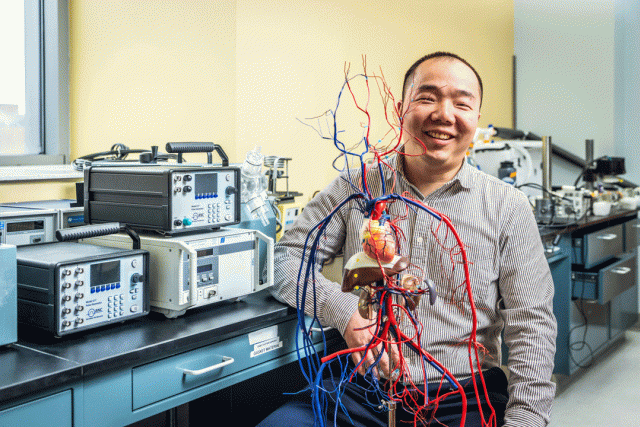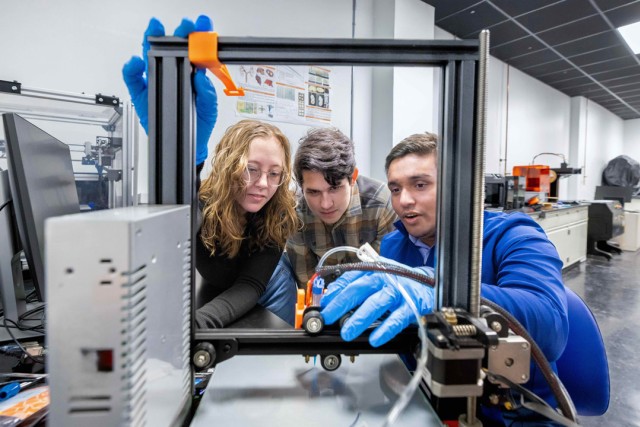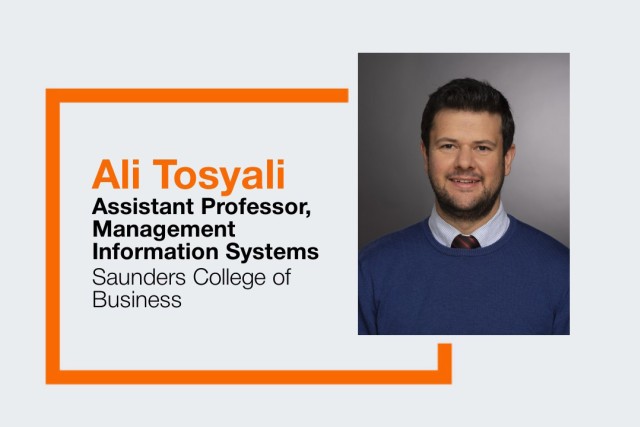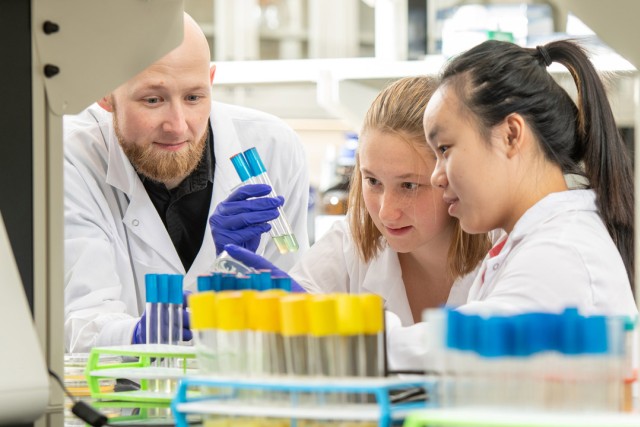News
-
February 23, 2026

RIT researcher studies how exercise could reduce the risk of aneurysm rupture
RIT Professor Zhongwang Dou recently received a prestigious National Science Foundation Faculty Early Career Development (CAREER) award for a five-year project to detail how blood flow within an aneurysm is affected by movement, and how physical exercise might affect the risk of aneurysm rupture.
-
February 17, 2026

RIT researchers formulate a new “recipe” for stronger bio-printed tissue
Researchers have developed a solution to finding a compatible gel medium to host human cells and a device that can print the delicate cells safely.
-
November 19, 2025

Venture Creations startup company is redefining breast cancer detection
BiRed Imaging, co-founded by Professor Satish Kandlikar, blends infrared camera capture, numerical simulation, and artificial intelligence-driven algorithms to accurately detect the presence, size, and location of tumors. The revolutionary process spares patients painful breast compression, radiation exposure, false alarms, and unnecessary anxiety.
-
November 13, 2025

RIT researcher develops mental health equivalent of MRI
Across the country, millions struggle to find timely or affordable mental health support. This imbalance was an inspiration for Ali Tosyali, who researched a potential assistive technology that could help practitioners identify potential disorders in a faster and efficient manner.
-
November 12, 2025

Stefan Schulze’s lab aims to build the foundation for new biomedical treatments
Backed by an award from the National Institutes of Health, Assistant Professor Stefan Schulze is using his expertise in the structure and function of proteins to work with a bacterial pathogen commonly associated with antibiotic resistance.
-
October 6, 2025

RIT researchers use machine learning to better understand the pathways of disease
A new project funded by the National Institutes of Health is using artificial intelligence to map the full journey of illnesses and discover entirely new disease pathways.
-
September 8, 2025

RIT sets record for sponsored research funding
RIT is celebrating a record year for sponsored research funding in fiscal year 2025, receiving $105 million.
-
August 6, 2025

RIT offers occupational therapy clinical doctorate degree in 2026
An entry-level clinical doctorate in occupational therapy will launch in June 2026. The program, which will focus on innovative interventions and adaptive devices that extend patients’ functional skills, represents the university’s first clinical doctorate degree.
-
July 21, 2025

Studio 930 students create assistive solutions for real-world challenges
The interdisciplinary and collaborative Studio 930 program asks students to apply what they know, learn what they don’t, and design products that make life, or a single task, more efficient and accessible.
-
July 3, 2025

Visiting student joins RIT robotics lab and gets ‘dream’ experience
Aayush Kulkarni is participating in the International Visiting Research Student Program through RIT Global, which offers students from around the world the opportunity to collaborate with distinguished faculty-researchers from RIT.
-
May 20, 2025

Biomedical engineer integrates AI techniques to improve diagnostic medicine
Researchers at RIT developed new artificial intelligence techniques to extract and visualize information from standard-of-care biomedical data, providing a means for clinicians to better diagnose diseases and determine interventions. -
May 14, 2025

New separation technique will improve lab-on-chip devices
Using a non-traditional, micro-organism separation method, researchers at RIT discovered a faster technique that can be used to distinguish cells that are resistant to antibiotics or cancer.